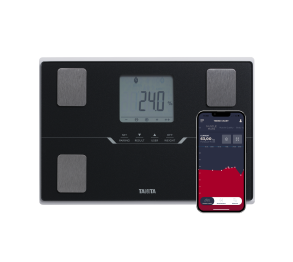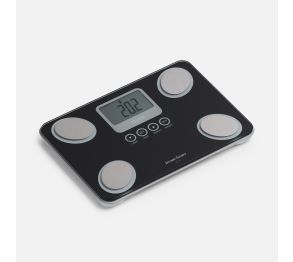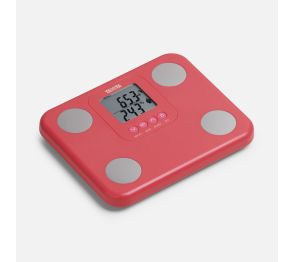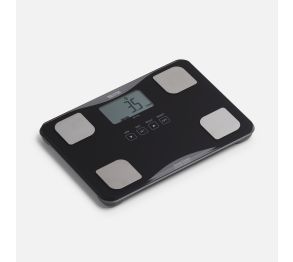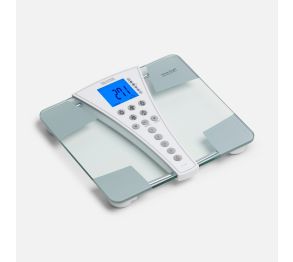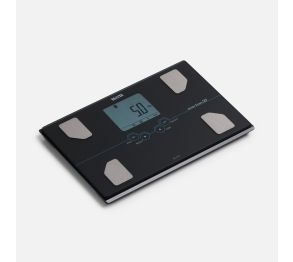Muscle density vs Fat: how it affects your weight


If you are stepping up your workout, or working out regularly for the first time, you may find that you don’t lose weight and become disheartened. At this point one of your friends will probably say “but you have been building muscle and muscle weighs more than fat”. In this blog we look at some of the facts about muscle density vs fat, why you need both and we start by answering the question – does muscle weigh more than fat?
Muscle density vs Fat: Does muscle weigh more than fat?
A kg of muscle weighs the same as a kg of fat, but the fat will have a greater volume and the muscle fibres will have a greater density. So, a kg of muscle will take up less space and look smaller, than a kg of fat. If Person A and Person B weigh the same in kg, but Person A has a much higher body fat % and Person B has a higher percentage of lean muscle, Person B, will look firmer, more toned and slimmer.
The basics of muscles and fat
Skeletal muscle helps to control body movement, so maintaining it is vital for you to be able to keep moving as you age. Muscles are also fuel stores giving the energy you need to exercise. Increasing your muscle tone and quality will help you to maintain a healthy weight, move more, burn calories faster, avoid injury and there is also research showing that skeletal muscle helps support your immune system. Fat is also an energy store, it helps to insulate your body and it supports the endocrine system, releasing hormones and proteins which regulate other organs and processes in our bodies.
Is my weight gain from muscle or fat?
One of the key problems with just weighing yourself on a bathroom scale is that you don’t know your body composition, or what makes up your total weight. When you have been training hard, particularly if your training has included weights or resistance work, you may find that your total weight actually goes up, so how do you know whether the increased weight is made up of more fat or muscle? The first step is to take a look in the mirror and note how the look of your body is changing over the time you have been working out. Setting weight aside, you should be seeing an increase in tone and firmness and increased muscle definition in the muscle groups you have been working on. This visual check should start to tell you that you have been building muscle and probably losing subcutaneous fat (the fat just below your skin) at the same time. However, for real understanding you need to use a body composition scale like the Tanita RD-545; taking regular readings of your muscle mass and body fat percentage will show you the changes in your level of muscle and fat over time and keep you motivated to keep improving.
How to keep track of your muscle and fat progress
All the measurements from the Tanita RD-545 will help you to understand your body and fitness better, but the following readings are particularly helpful if you are concerned about your levels of muscle and fat.
- Muscle mass – This measurement shows you the weight of the muscles in your body in kilograms or pounds. Increasing your muscle mass will boost your metabolism so that you burn calories more quickly than the equivalent fat.
- Body fat % - This reading tells you the percentage of your body which is made up of subcutaneous and visceral fat so you can check it against the healthy ranges. Keeping a regular check on your body fat % will help you to spot increases in fat which will indicate that you need to review your diet and your workout programme.
- Basal metabolic rate - This is the number of calories your body needs to function during total rest. The more muscle you have, the more calories you will burn and the higher your basal metabolic rate will be.
- Physique rating – one of the most useful measurements you can have is your physique rating. This assesses your muscle and body fat levels and rates the result as one of nine body types including Rating 1 – hidden obese, Rating 5 – standard and Rating 9 – very muscular.
Why measuring muscle and fat is more reliable than weight
As we have seen, assessing your health is about a lot more than just seeing how much you weigh and the relationship between weight and health is not a straightforward one. Whilst your weight might be what you think of as high, if it is because you have a high density of muscle, it is a good sign. Similarly you might look thin and have a low body weight but actually be ‘skinny fat’ with a low level of muscle density and a high level of unhealthy visceral fat around your internal organs. Hence, rather than comparing yourself against others, start to understand your own make-up and what you personally need to do to improve. Hopefully your weight seems higher than you thought it would be because you have been building dense, quality, muscle fibres which will help to keep you healthy throughout your life, but don’t rely on guess-work, jump on a body composition scale and find out!

